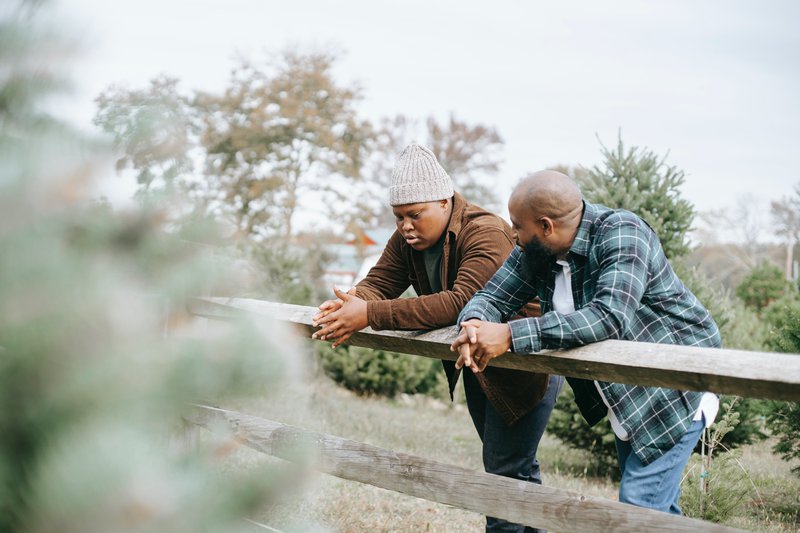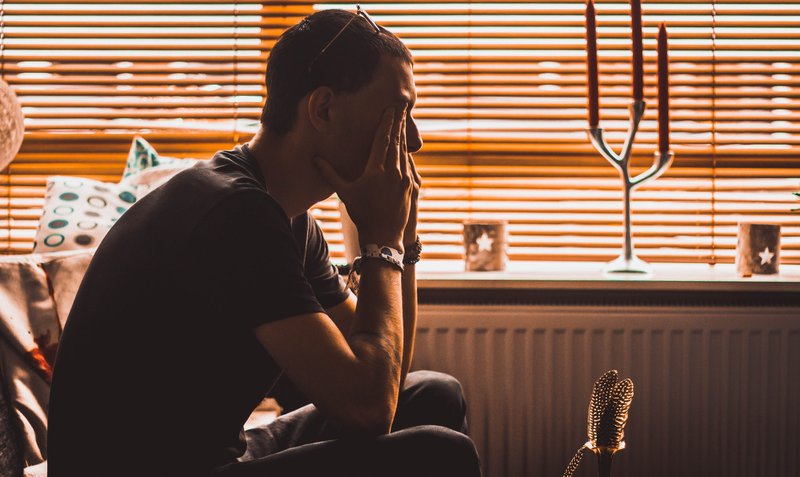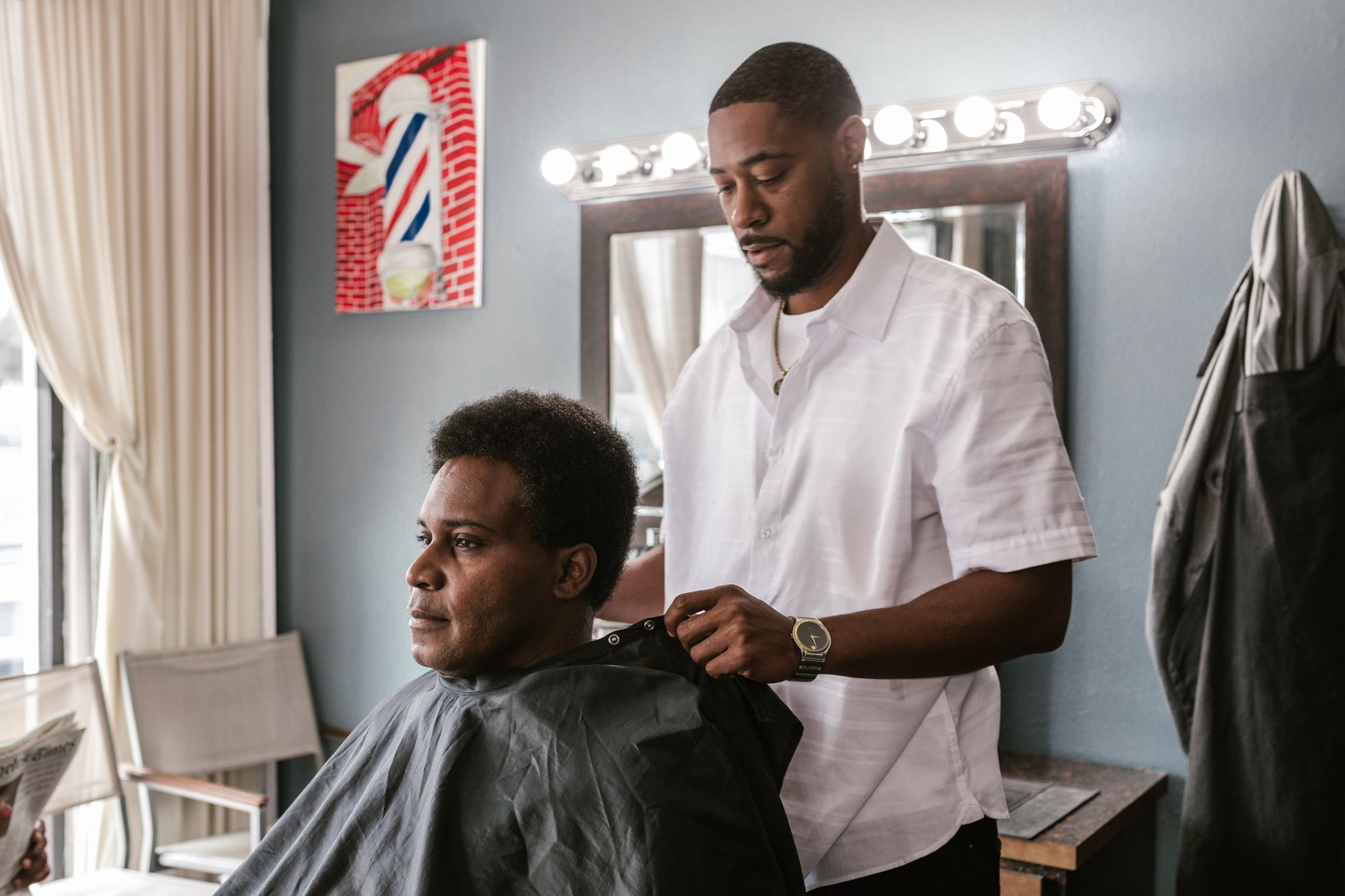These barbershops offer mental health care with your haircut
I came across an article by the CBC about a couple of barbershops that offer free cuts, shaves, and fades twice a week, and at the same time, they offer the participants free mental health support.
Dr. Ron Milne, who is spearheading this initiative said that men, in general, don’t feel comfortable talking about their mental health but this barbershop model has been successful elsewhere and he wanted to try it in his community.
The men and boys who show up at the barbershops get to talk about anything from racism in the workplace and issues with the police, to how the pandemic has disproportionately affected people of colour. The participants have an opportunity to vent their frustrations and receive real support for their challenges with mental health.

The Confess Project connects Black men with mental health support
Looking around, I discovered that this idea of barbers taking on a supportive role is widespread. In an article in Healthline, the author, Cathy Cassata writes about Lorenzo P. Lewis who in 2016 started the Confess Project, as the first mental health barbershop movement in the US.
Lewis is quoted in the article as saying that, “barbershops have been used for social justice back to the civil rights era, and there is a lot of historical context around the barbershop, so I took this history… and extended it out to help barbers be advocates in their community.”
Lewis added that, “there is confusion of where to go for services and how to access them. Barbers know their clients and can help. They can be leaders and mental health advocates in their community in nontraditional, hands-on ways. They’re not counseling clients, but supporting them, listening to them, and sharing resources so they can get the help they need.”
Lewis is also quoted in the article as saying that, “there is a big lack of understanding of the Black male experience, and so many people who work in academic and clinical settings may not be as educated as needed about how Black men show up in work, school, and social groups.”

I received zero education about mental health in the BIPOC community
I wholeheartedly agree with this statement as I received exactly zero education either in medical school or in my psychiatry residence about systemic racism in healthcare or about the experience of BIPOC individuals around mental health.
I’m sure that I’m not alone. After decades of practice, I’ve only just begun to see workshops offered in dealing with systemic racism and in mental health and the BIPOC community.
In an article from Counseling Today, the authors write about the role of barbershops for African American men, noting that “research shows that within the African American community, mental health issues are rarely discussed, and… African American men are socialized to handle difficulties or problems by themselves or with close friends and family members, not with the help of outsiders such as professional mental health service providers.”
The article concluded by saying that, “although it does not replace professional counseling, the barbershop could be a window of opportunity for increasing mental health treatment for deeper psychological issues. As the literature reports, programs such as the Confess Project are successful in providing education to barbers to recognize mental health issues.”
At a time when BIPOC individuals are struggling with deepening systemic racism, increased microaggressions and macro-aggressions, as well as the impact of COVID on their communities, it’s gratifying to see these grassroots initiatives springing up across the US and Canada.
It’s a terrific idea to take advantage of venues like barbershops that are already seen as safe spaces in which to share thoughts and feelings. I applaud all the people involved in setting up these initiatives.

Men, in general, are reluctant to seek out mental health services
As the research has shown, men are often reluctant to seek mental health help, and men of colour, perhaps even more so. By creating a simple way of accessing mental health support, these innovators are doing an enormous service for the BIPOC community.
These initiatives are reducing suffering and improving the quality of lives, not just for the participants but for their families and their communities as a whole. Governments should take note and offer funding to anyone who is setting up these types of programs.
______
Sign up here for my free biweekly wellness newsletter that brings you fresh, thought-provoking content.
Subscribe to my YouTube Channel where you’ll learn simple tips for taking the best care of yourself and your loved ones.
Tune in to my Ruthless Compassion Podcast where I go in-depth about topics like mental health, trauma, and loneliness.



